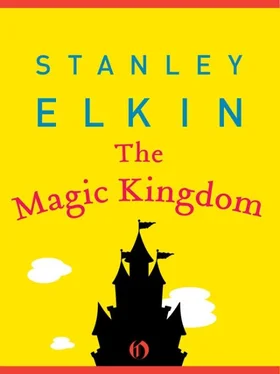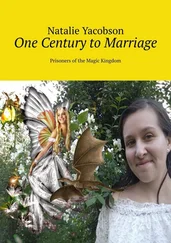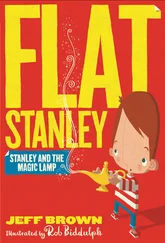The monorail made its steady slot-car yardage. There’d been a balls-up. The Cottle woman had vanished, and now Colin Bible was bringing the boys back to the hotel by himself. After the rapid melt, in its way quite as astonishing as the freak snowstorm (and practically no trace of moisture left, as burned off as fog, as over and done as morning dew), there’d been a palpable rise in all their spirits. Even Moorhead, rubbing his hands (and thinking of Jews, anxious to be out among them), had seemed overcome by a pumped and racing enthusiasm that Colin (who’d nursed for the man, who’d followed his orders, who’d attended his low-keyed talks about the special needs of dying tykes — Moorhead’s own odd and discrepant term — and who felt without particularly liking him a rapport that was almost a kind of affection that people of different castes in related fields often have for each other) had never seen. The doctor had practically burst into lecture.
“We’re foreigners in a foreign land here, and it’s only proper we begin by paying our respects to our hosts. That’s what all those tourists are about tramping up and down Whitehall, you know. Taking each other’s photographs with Parliament in the background and nosing out Number Ten. This isn’t a seat of government, of course, but I’ve been studying the guides and I should say we ought to begin on Main Street, U.S.A.”
Which the children had loved, which they all had. Falling in at once with the cobbled ambiance of the place, its pretty High Street shops and brisk Victorian roofs, touched by the gold-lettered nimbuses of the names in the second-story windows, by the horse-drawn trams and open double-deck buses, trim as sunlight, by the gaslights and the bandbox atmospherics of its boater feel, its emporiums and ice-cream parlors and all the sweet, from-scratch, holiday aromatics of its candy treasuries. They were overwhelmed by nostalgia, even the youngest, by the vague and unspoken consanguine textures of its British- seaside-resort equivalencies. They moved briskly, swept along by that boater feel and bunting mode, almost sensing wind at their backs, almost smelling taffy, almost sniffing salt. This could be Blackpool, some thought. This could be Brighton, thought others.
They’d enjoyed, too, the Hall of Presidents, sitting politely through the brief historical film that preceded the main show, even Mudd-Gaddis’s aged cynicism in abeyance, even Benny Maxine’s cultivated scorn suspended. “Shh,” said Nedra. “Hush.” Though she needn’t have bothered. No one was making very much noise. For one thing, they were too comfortable, sitting back in the deep, soft seats, breathing the air conditioning like oxygen, all of them, the sick and the well, in that perfectly balanced state of absorption and anticipation, the easy doldrums that surround an entertainment and seem to fill time and make even the preparations and directions, soft warnings, and signals between the ushers and guides an organic part of the proceedings, as pleasant to watch, as interesting to overhear, as anything that follows, other people’s work an extension of the performance.
Yet none was prepared when the patriotic film ended and the curtains rose on the automatons, the curiously detailed machines that were at once as stiff and fidgety as people caught in some fret of life, the shuffling and bitten-back coughs of a group photograph, say, a public ceremony.
“They’re these androids,” Nedra Carp said in a whisper. “They’re not real.”
“Actors,” Tony Word said.
“They’re actors,” Noah Cloth conceded, “but like that frog actor you see on the telly they got over in France who plays like he’s a machine.”
“But there must be forty of them up there,” Lydia Conscience said.
“Sure,” Benny Maxine said, “it’s a chorus line.”
“They’re robots. I think so,” Janet Order said.
“They’re these special computers,” Rena Morgan said.
“They’re real,” Charles Mudd-Gaddis said with all the authority of his years.
“They’re real? They’re real?” Benny challenged. “Don’t you read the papers, don’t you keep up? That one’s Ronald Reagan. There’s Nixon, there’s Carter. You think there’s this band of statesmen, this troupe of artiste presidents engaged in theatrical entertainments?”
“They’re real,” Mudd-Gaddis repeated.
“Sure, Grandpa,” Benny said, “they went all out.”
And when Lincoln began speaking, Colin Bible could only feel shame for his friend back in England, for the pale dead figures in the pale dead waxworks, for all the pale unresurrected heroes and villains here mocked.
Remarkable anatomical detail, thought Mr. Moorhead. But how could anyone ever have thought that Roosevelt was Jewish, I wonder?
Let them wonder, thought Eddy Bale.
“They’re not real,” Colin Bible said, choking back his sob, as taken with the fret of life as any of the machinery on the stage. And moved, terribly moved. He never told me anything about this, Colin thought. He never told me because he loves me. The nit wanted me to be proud of him. And there, in the Hall of Presidents, in the solemn silence that had replaced the quiet debate that had buzzed throughout the auditorium, Colin was. Proud of being loved like that. He’d say nothing to Colin. He wouldn’t mention the matter. And if Colin brought it up he’d make a joke. “What, them?” he’d say. “Circuits and circuitry. They were put together by electricians. They were turned out by Japanese,” he would reassure him.
And even Eddy Bale, breathing easy because they’d come through the first morning and a piece of the first afternoon. They were doing it properly. Even lunch had been easy, a piece, thought Bale cheerfully, of cake. Moorhead had found a sort of juice bar, and the children had snacked on the juices of fresh fruits and vegetables. Two or three had had yogurt. So Bale, whatever it was that made him reluctant and kept him indoors, the old tourist misgivings that almost ruined his and Ginny’s honeymoon on the Costa Brava and made him sit upright in cabs, his greenhorn temerity stilled, his sucker-oriented agoraphobia, actually — though Mr. Moorhead by simple dint of status outranked him, Eddy was still the leader of this expedition — made a decision. They would split up. It made more sense. More bang for the buck, as the Americans put it. (As Bale did. Putting “as the Americans put it” before even “more bang for the buck,” drawing them in not with the slang so much as the Britishism, drawing them in, consolidating and federating them, reminding them in this southerly latitude on this thick spit of land if not who they were then at least where they were from.)
So Bale delegates Mary and Colin to lead Charles, Tony, Noah, and Ben to the Haunted Mansion. Which, it turns out, is not all that much unlike one of the lesser stately homes of England, more particularly Mr. Moorhead’s. It is, surprisingly, the wizened little in-and-out memory-damaged Charles Mudd- Gaddis who points this out to the rest of them.
“It’s the very place,” Benny Maxine said.
“Well, not the very place,” Colin Bible said.
“Awfully like,” said Noah Cloth and out of habit held up a fingernail to bite which had been amputated along with the phantom finger it had grown from seven months before.
“It’s sort of eighteenth-century,” Mary Cottle said, “but it’s Dutch.”
“Mister Moorhead is Dutch,” Tony Word said.
“Mister Moorhead is? How would you know something like that?” Colin asked.
“Well, he told me,” Tony Word said. “That one time we went there.”
“They were testing us,” Benny Maxine said. “To see if we were compatible.”
Читать дальше












